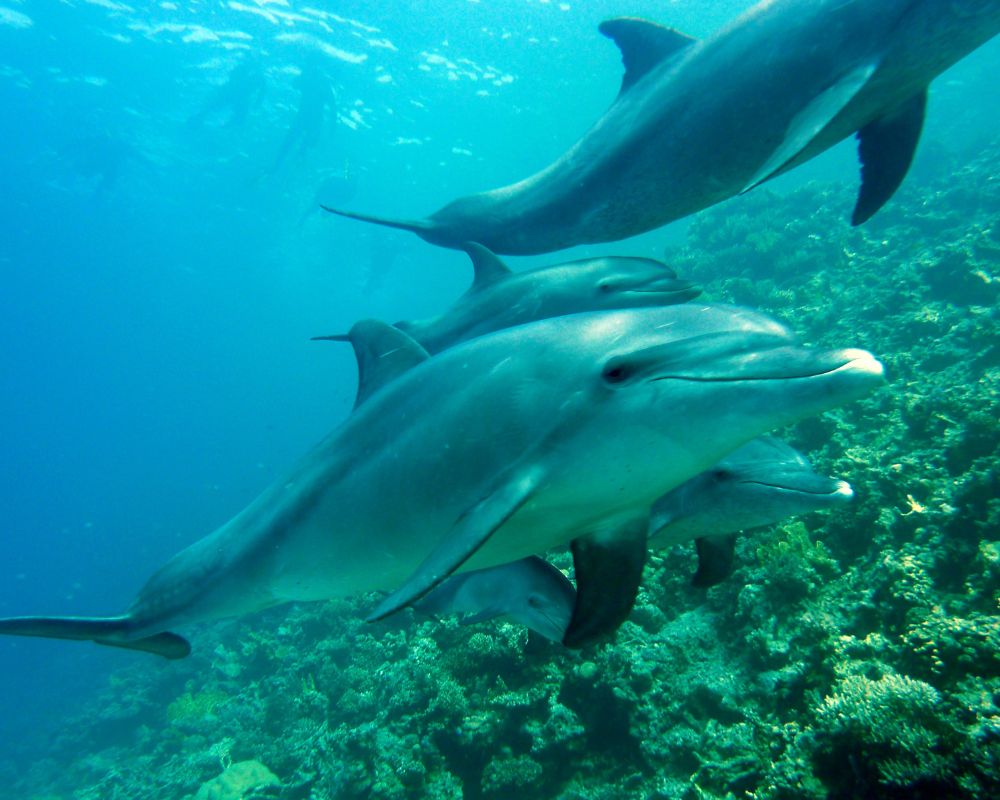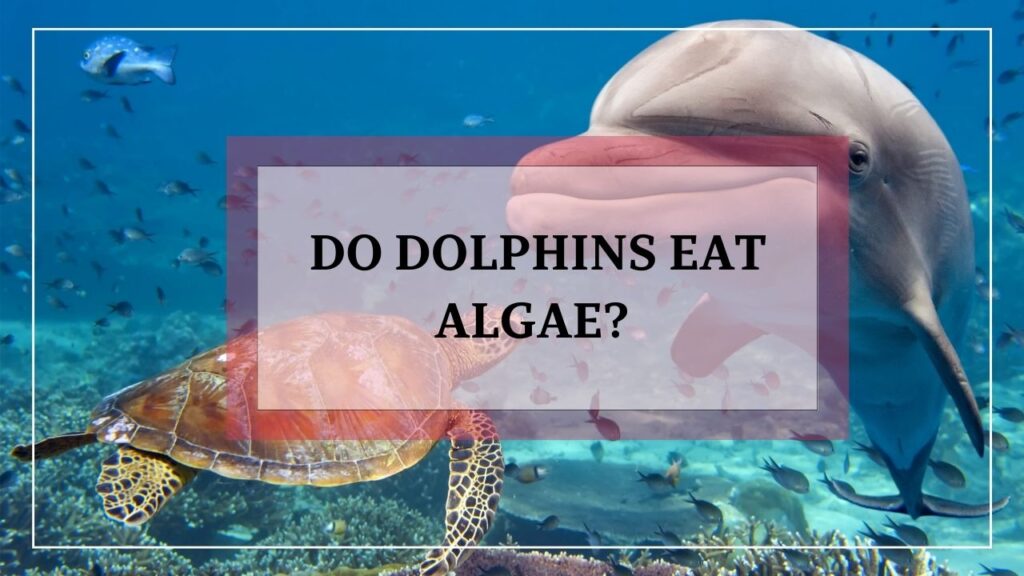Have you ever wondered what dolphins eat? Perhaps you’ve seen them gracefully leaping out of the water or heard their playful chatter, but have you ever thought about what they’re putting into their bodies?
One question that often comes up is whether dolphins eat algae. In this blog post, we’ll explore this topic in detail and find out if these intelligent mammals add algae to their diet. So, grab a cup of tea, and let’s dive into the world of dolphin diets!
Do Dolphins Eat Algae?

When it comes to the question of whether dolphins eat algae, the answer is not a simple yes or no. While dolphins are primarily carnivorous, they have been known to consume small amounts of algae in certain circumstances.
Let’s explore this topic in more detail:
Scientific Studies On Dolphin Consumption Of Algae
Several studies have investigated the consumption of algae by dolphins. One such study found that dolphins in the Indian River Lagoon in Florida occasionally consumed a type of green algae called Ulva.
The researchers found that the dolphins likely consumed the algae accidentally while feeding on small fish that were associated with the algae.
Another study examined the stomach contents of stranded dolphins in the Gulf of Mexico. The researchers found small amounts of algae in the stomachs of some of the dolphins but noted that it was unclear whether the dolphins had consumed the algae intentionally or whether it was simply present in the stomach contents due to other factors.
Can Dolphins Digest Algae?
Dolphins have a unique digestive system that allows them to efficiently process and extract nutrients from their food.
However, they are not well-equipped to digest plant matter like algae. Unlike cows and other herbivores that have specialized digestive systems for breaking down tough plant fibers, dolphins lack the necessary enzymes to digest the complex carbohydrates found in algae.
While dolphins may be able to consume small amounts of algae without suffering ill effects, it is unlikely that they can derive significant nutritional benefits from it.
But, Why Do Dolphins Consume Algae In The First Place?
Given that dolphins are not well-suited to digesting algae, why might they consume it in the first place? One possibility is that they do so unintentionally, as in the case of the dolphins in the Indian River Lagoon.
Alternatively, some researchers have suggested that consuming small amounts of algae may provide some nutritional benefits, such as vitamins or minerals that are not present in the fish and cephalopods that make up the bulk of their diet.
However, these potential benefits are likely outweighed by the difficulty in digesting the algae and the fact that it does not provide a significant source of calories or protein.
The Nutritional Benefits Of Eating Algae To Dolphins
Some evidence suggests that small amounts of algae may provide some nutritional benefits.
For example, algae are rich in vitamins and minerals that are not present in fish and cephalopods that make up the bulk of a dolphin’s diet. These include essential fatty acids, iron, calcium, and vitamin C.
Additionally, some species of algae are high in antioxidants, which can help protect cells from damage caused by free radicals.
Keep in mind that dolphins lack the specialized digestive systems necessary to break down the tough cell walls and complex carbohydrates found in plant matter.
As a result, they cannot extract as much nutrition from algae as they can from animal-based foods.
Furthermore, the nutritional content of algae can vary widely depending on the species and environmental conditions in which they are found.
This means that dolphins would need to consume specific types of algae in order to derive any significant nutritional benefit.
Types of Algae Consumed by Dolphins
While dolphins are primarily carnivorous and do not typically consume large amounts of plant matter like algae, there is some evidence to suggest that they do consume certain types of algae in small quantities.
One type of algae that has been observed in the diets of some dolphin species is red algae, also known as Rhodophyta.
This type of algae is rich in protein, iron, and other nutrients that are important for the health of marine animals.
Red algae can also contain polysaccharides, which are complex carbohydrates that can be difficult for dolphins to digest.
Another type of algae that is sometimes consumed by dolphins is green algae, also known as Chlorophyta.[1]
This type of algae is high in chlorophyll, which gives it its characteristic green color, and is also rich in vitamins and minerals that are beneficial to marine animals.
Finally, some dolphin species have been observed consuming brown algae, also known as Phaeophyta.
This type of algae is particularly high in iodine, which is essential for the function of the thyroid gland, as well as other vitamins and minerals.

